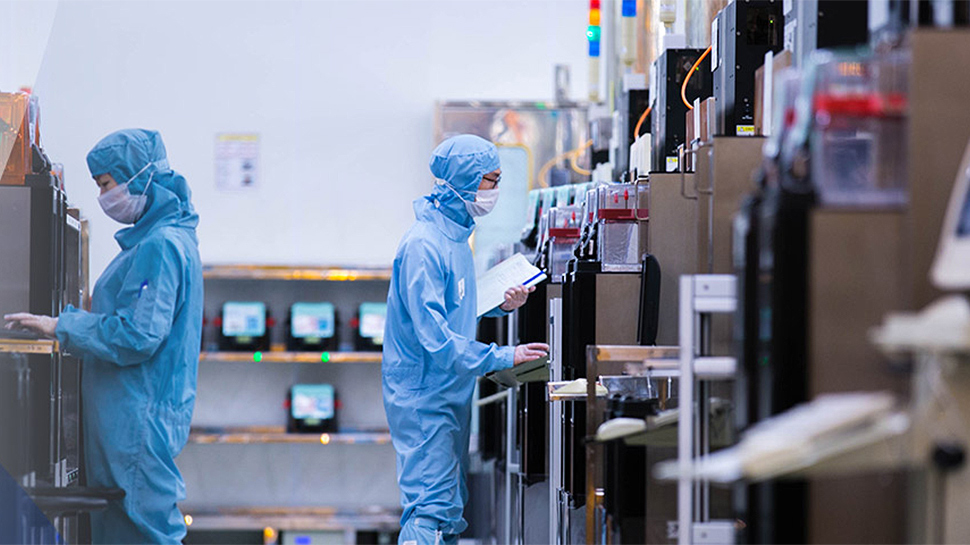Taiwanese authorities accuse SMIC and allies of poaching engineers
90 people have been interviewed in connection with 11 locations across six cities

Taiwan is investigating whether Semiconductor Manufacturing International Corp. (SMIC), China's largest contract chipmaker and the world's third largest foundry, broke local laws by secretly recruiting engineers to get experienced staff and gain insights of Taiwanese semiconductor know how, reports Bloomberg. The investigation is part of a broader crackdown on unauthorized activities by Chinese tech companies in Taiwan, notes Nikkei.
Taiwanese authorities raided 34 different locations in six cities between March 18 and March 28. Officials from the Ministry of Justice examined operations linked to 11 Chinese companies and interviewed over 90 people in connection with suspected breaches of local laws concerning talent poaching by Chinese companies. Most of the companies under investigation are involved in the semiconductor sector. Officials said this operation had been in the planning stages since December.
According to a statement published by Nikkei, around 11 companies, the majority from the semiconductor industry, violated Taiwan's cross-strait regulations. Illegally setting up office without the government's knowledge. Of the 90 interviewees, some were witnesses, while others may have broken the law.
The investigation revealed that SMIC used a company registered in Samoa to discreetly recruit engineers in Taiwan. Authorities also found that several other firms had formed unauthorized local entities to carry out hiring for work on advanced projects, including 'high-performance networking,' which is probably how business media describes silicon photonics, an area that is becoming increasingly important for next-generation AI and HPC datacenters. It is unclear whether these entities are linked to SMIC though./
SMIC has 7nm-class and preps to roll-out 6nm-class process technologies, the best production nodes available in China. It produces chips for Huawei's HiSilicon, which tends to develop competitive offerings for client devices as well as AI servers and general-purpose servers. SMIC and Huawei need technologies like silicon photonics for their next-generation offerings.
However, SMIC is not the only company that allegedly poaches engineers from Taiwanese companies. A company called Clounix was found to have poached a large number of specialists from major companies like Intel and Microsoft. It reportedly first disguised itself as a local company and later as a Singapore-based chip designer to avoid oversight. However, Clounix has financial backing from Ant Group, which is affiliated with Alibaba, which is emerging as a large cloud service provider with its own custom silicon division that develop CPUs and special-purpose ASICs for its broad needs, including general-purpose processing and AI workloads.
Interestingly, Chinese entities were not only interested in advanced semiconductor or processor technologies know how. A company that develops display driver ICs has allegedly set up two offices in Tainan and Hsinchu and conducted remote interviews from China to bring in Taiwanese talent. It is unclear whether they wanted Taiwanese engineers to develop DDICs in China.
Get Tom's Hardware's best news and in-depth reviews, straight to your inbox.
SMIC has previously been caught misappropriating TSMC's manufacturing technologies. In the early 2000s it even paid for it after appropriate courts sided with TSMC's allegations. Nowadays the company develops its own fabrication processes, but is eager to poach engineers who has experience with the finest production technologies that are out there.
Huawei is a relatively new player in the semiconductor field. However, it is already known for poaching TSMC employees by offering them a trifold higher salary and other benefits. Chinese producers of semiconductor equipment are also interested to hire Taiwanese engineers who have experience with tools designed by its rivals to help develop its own equipment in China.

Anton Shilov is a contributing writer at Tom’s Hardware. Over the past couple of decades, he has covered everything from CPUs and GPUs to supercomputers and from modern process technologies and latest fab tools to high-tech industry trends.
-
bigdragon Having your employees "poached" tells me your company wasn't compensating them right. Working hours, pay, time off, and working environments are all part of the equation here. The engineers have every right to seek greener pastures as the executives do. Taiwan should investigate the companies losing these engineers.Reply -
Notton Yeah, talent poaching has been around since the industrial revolution (1760's).Reply
There was enough time between then and now to figure out how to prevent it. -
pyao88 When companies steal trade secrets from rival firms it's cheaper to pay 3x above market.Reply -
FR33L35T3R If Taiwanese companies had paid their employees fairly and offered more attractive working conditions, perhaps there would be less of a talent exodus. It’s not an excuse for illegal recruitment, but it helps explain that decent salaries and a supportive environment are often the best defenses against this kind of behavior.Reply -
pyao88 TSMC jobs are amongst the highest paid positions in Taiwan. The story is it does come with long hours. Many knows that already before they applied for the position.Reply
It would need the government to specify the job/trade secret as national security and disallow TSMC employees from working for a country Taiwan is defending from.
Military personnel are offered money to disclose military secrets. There would always be higher payouts to exceed the regular pay as long as they got the secrets rival is looking for.
Discounting illegal recruitment, Silicon Valley employees jump ship from $300k salary to $400k salary. Lack of salary isn't a concern there.